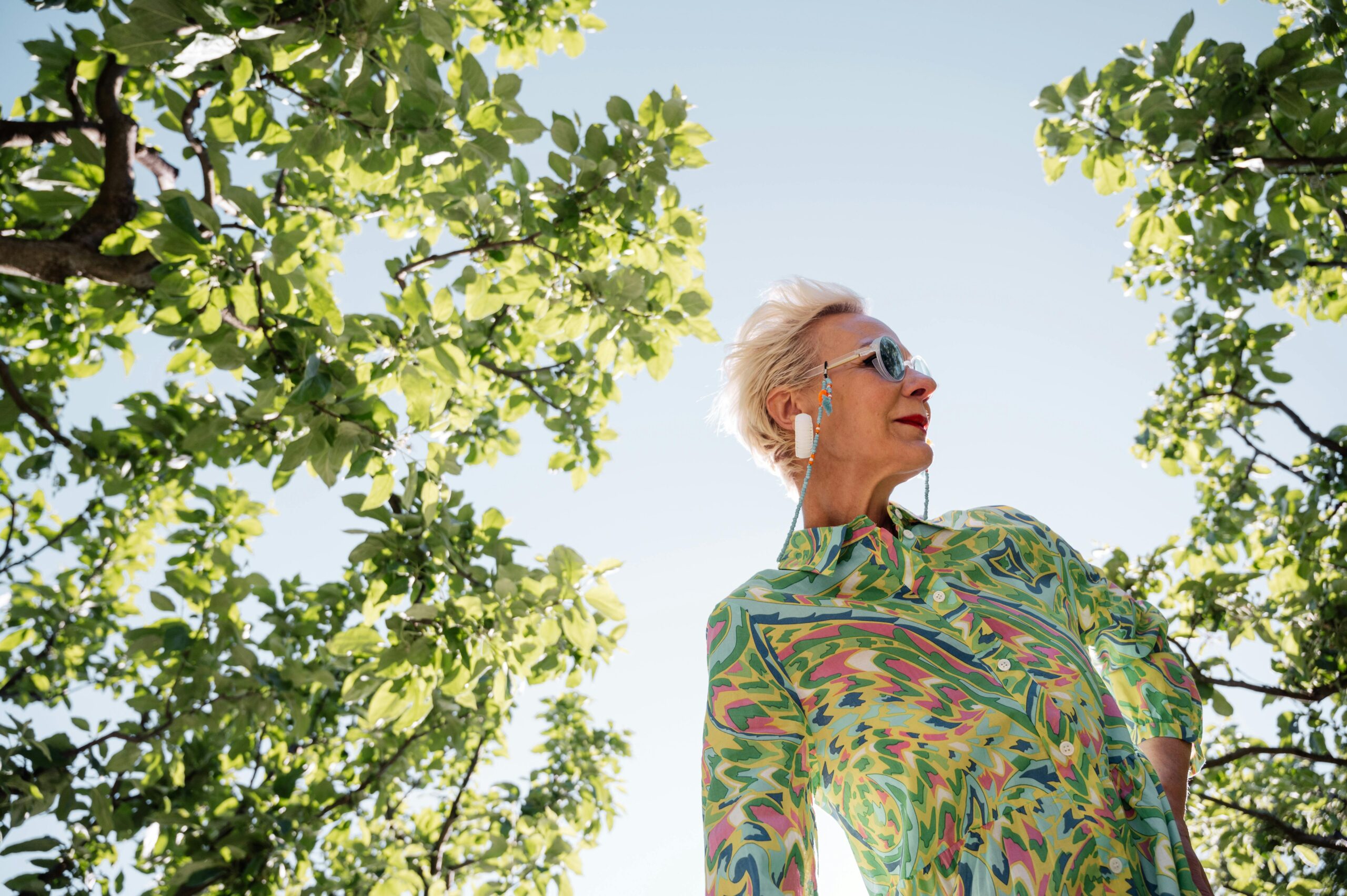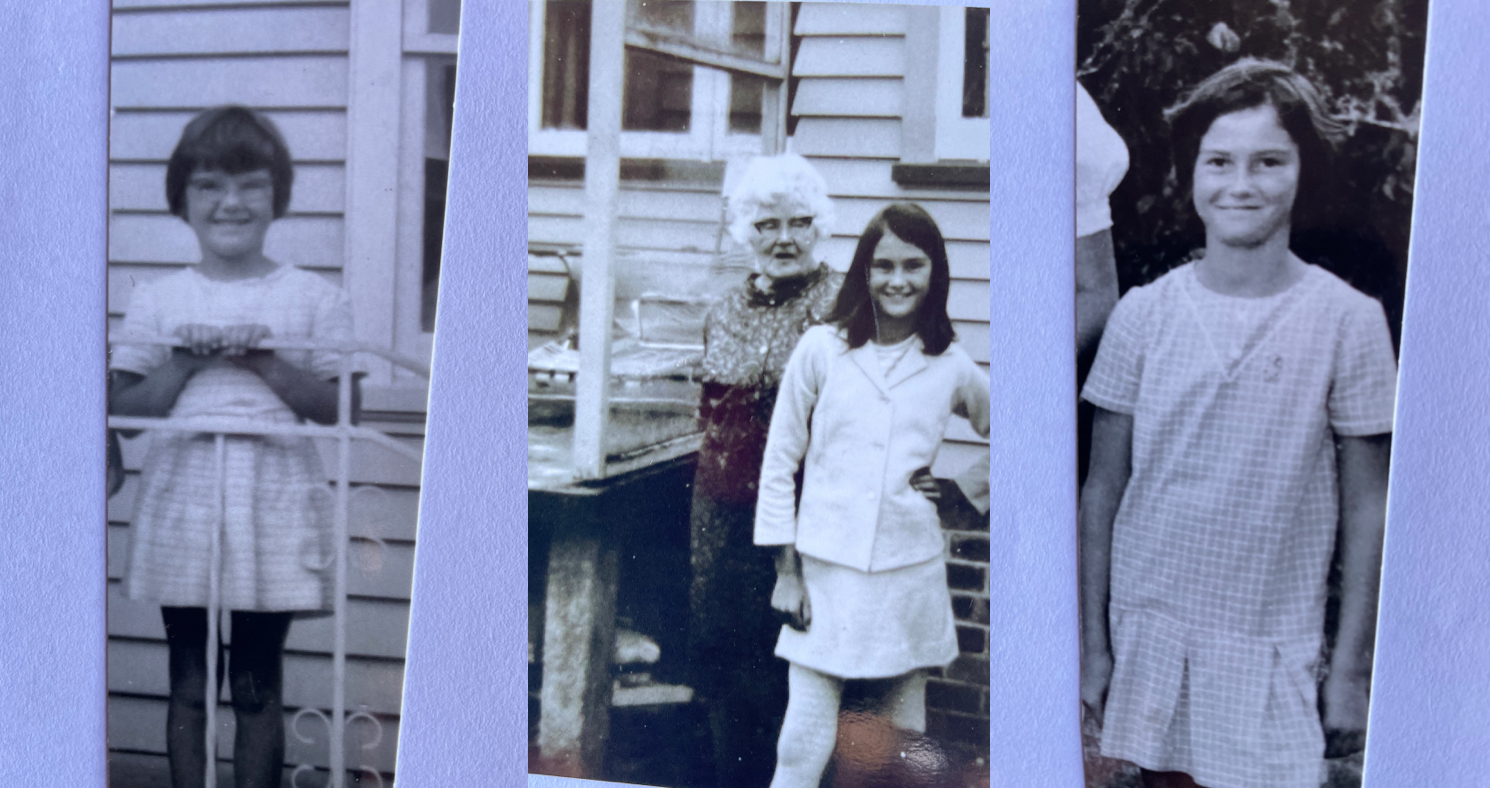
By Kate Kaufmann
Who counts as family when you don’t have kids? The answer can be ambiguous. It’s a delicate dance sometimes, finding our family roles and places of belonging with parents and siblings and mates. As aunties, we may fill new roles we embrace or become a once-removed part of a secondary circle of family.
Women without children don’t figure into idealized images of doting grown-ups cuddling the next generation. Our challenge is to become clear about who we are in this jellylike substance called family. Some of us stay single, while others add mates and become families of two. Sometimes family looks more like a lopsided Venn diagram, with its circles overlapping. When a childless woman partners with someone who has kids, the big circle of parent and children dwarfs the small circle—the person without them. Becoming a stepparent with no children of your own in the mix is like the first day of school when you’re the new kid, and everyone else has known each other for ages.
Aziza Cunin (not her real name) is an artist. After babysitting for neighbors growing up, Aziza was so sure she didn’t want kids she went on birth control, even though she wasn’t having sex yet. She soon ended up with kids anyway. Aziza got married at twenty-one. Her husband already had a couple of kids, ages five and seven. They lived with their mom and visited the newlyweds on weekends.
One day about six months into their marriage, he came home with the kids in tow. “Congratulations,” she remembers him saying, “you’re a mother now.” A drunk-driving conviction landed his ex in jail. Aziza’s husband and his attorney pounced. “We had not even discussed it,” Aziza recalls.
The kids never really cottoned to Aziza, nor she to them. “I felt sorry for them. I had compassion for them, but did I love them? That is a difficult question.”

Her husband’s work life was erratic, his behavior volatile. Aziza suspected drugs. “I didn’t know how to deal with it,” she says. “I did my best.”
When the school found marijuana in the daughter’s locker, her husband blamed Aziza. “Earlier I’d listened to both of the kids saying, ‘Fuck you, you’re not my mom,’ then he’s telling me I created this? Enough. That’s when I left.”
“Looking back on it,” she says, “I think the whole marriage was an opportunity to set boundaries. Having the kids increased that necessity.”
She’s never seen nor heard from the kids again, though she does look for them periodically on Facebook.
Had Aziza hung in there, it’s unlikely the kids’ chill would have warmed. Fewer than 20 percent of young adult stepchildren feel close to their stepmothers, found Dr. Mavis T. Hethrington, professor emeritus of psychology from University of Virginia.
Mary T. Kelly, a psychotherapist specializing in stepfamily issues, offers tips to women without children who are married to mates with kids.
-Accept that feeling like an outsider when your partner is with their children is normal and natural.
-Make sure that your partner understands your feelings.
-Don’t take it personally.
-Stay connected to yourself.
-Focus on your partnership
While there are challenges and unclear roles as one blends into an already-established clan, take out the presence of children, and is what’s left really a family? Amy Blackstone knows a thing or two about the morphing definition of family. She’s a sociologist and expert on the child-free.
Dr. Blackstone describes the four major functions that families fulfill in our society: sexual and emotional companionship, financial support, a place to live, and reproduction, which can be biological and/or social. Those of us without kids form lasting relationships, nurture ourselves, our mates, our parents, and our pets, explains Blackstone, adding that research confirms non-parents’ marital satisfaction and emotional well-being are on par or greater than that of parents.

Even though we don’t typically provide economically for children, women without them often financially support partners and sometimes other family members. “When we talk about families, be it in politics, in the workplace, or in our popular culture, the child-free often get left out of the conversation,” she says. “Yet recognizing that the child-free form families—and how they do so—is an important step toward destigmatizing the choice not to have kids.”
Blood family. Chosen family. That’s how Elsa Stavney, forty-five, defines family. Her blood relatives are important, and she loves them. Chosen family includes her husband, two couples—one with young children–and a single woman friend. Some have known each other for decades, while others have been added along the way. These are the people Elsa relies on.
Chosen family often spends holidays together, even big-ticket ones like Thanksgiving and Christmas. “We joke that holidays with each other are so much easier, relaxing, and enjoyable than when we’re with our blood families,” she says.
Elsa was a special-education teacher for years before she went back to school to get her MBA at age forty. “I fell in love with those kids,” she says, “but I never thought I want one.” She also never thought she’d get married. “Eric didn’t want kids either. That solidified the deal.” They’ve been together since 2003.
Their practice of spending holidays with chosen family hasn’t set well with everyone. “It’s hard on my parents,” Elsa says, “particularly my mom. She feels like I’ve rejected her. I’m letting that go. It’s not my job to take care of that emotional part of her.” Sometimes not having children means a woman dedicates a lifetime to her birth family.

“If you live long enough, you mother your mother,” says Jane Dunwoodie, who has lived in her family home in Dayton, Ohio since she was born. “The only card game I played as a kid was Old Maid,” she chuckles, “and I became one.” Jane is a sunny sixty-four-year-old blonde who works in a library.
Even when young, Jane cared for her brother, severely disabled in a car accident who died at age 44. Then her grandmother, and now her mother, who is 101 and confined to a memory care facility. “The maternal role was part of me from childhood on,” she says. “You can be maternal even without the kids.”
Jane visits her mom at least two hours each day. People sometimes ask why she does it. “The family is down to just Mom and me,” she says. “If I’m not here, that’s a day without family for each one of us. That just doesn’t feel right.”
They celebrate holidays together, a different sort of family of two. Jane has made changes to tradition. “We find the single friend who doesn’t have children and include them,” she says. “When Mom’s gone, we’ll find new ways to celebrate. They’re the ones who’ve become my chosen family.”
Jane knows her mom’s death will dramatically change her. “I’ve asked friends if they see me starting to date some really needy guy, tell me to run the other way and learn to take care of myself.”
Picture family—blood and choice—as if contained within a membrane. Members bind together, sure. But an important characteristic of each family is also the permeability of the membrane that defines its borders. Are outsiders welcome? Or is family more like the concrete wall that once divided East and West Berlin into them and us. What about those inside? Can they flow beyond the membrane comfortably, or is it a violation, a sign of abandonment. When families come together, is it a collision of incompatible substances or an integration of disparate parts?


Kate Kaufmann embarked on her life as a non-mom when she abandoned fertility treatments, quit her corporate job, and moved from the suburbs to a rural community to raise sheep. Since 2012, she has talked with hundreds of women ranging in age from twenty-four to ninety-one and advocates for better understanding of the childless/childfree demographic and create her book, ‘Do You Have Kids? Life When the Answer is No’. Kate received an MFA in creative writing in 2016 from the Northwest Institute of Literary Arts and has a professional background in corporate staffing, training, and consulting. She currently calls Portland, Oregon home. Visit her at www.katekaufmann.com.
















